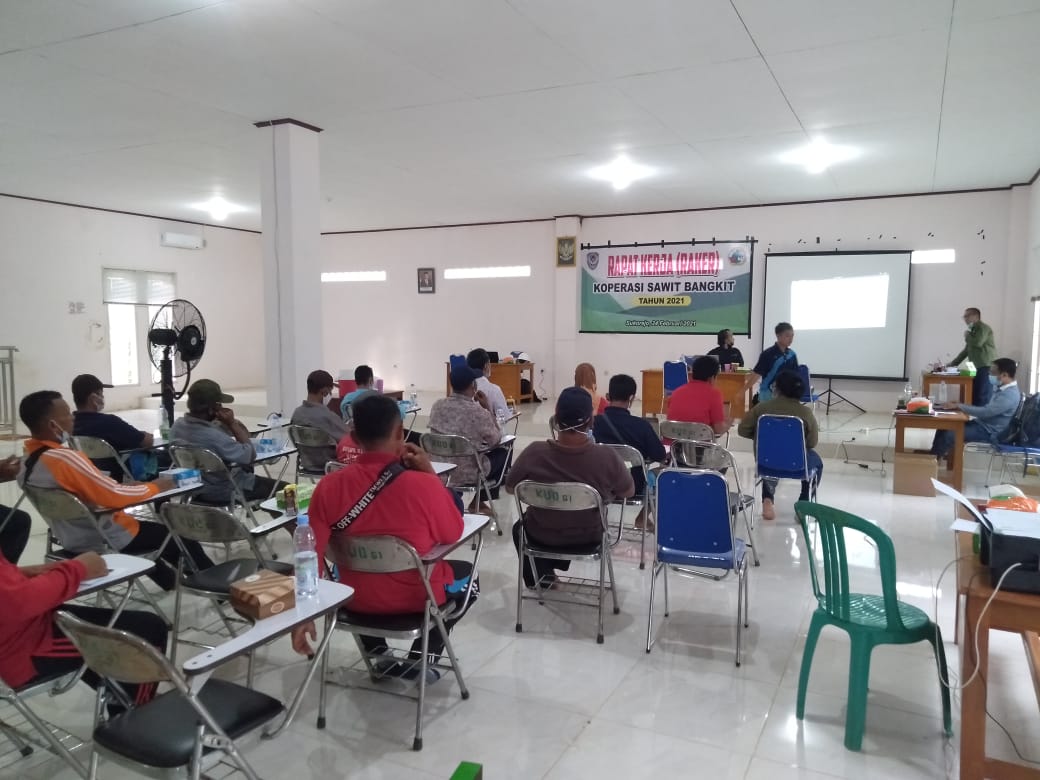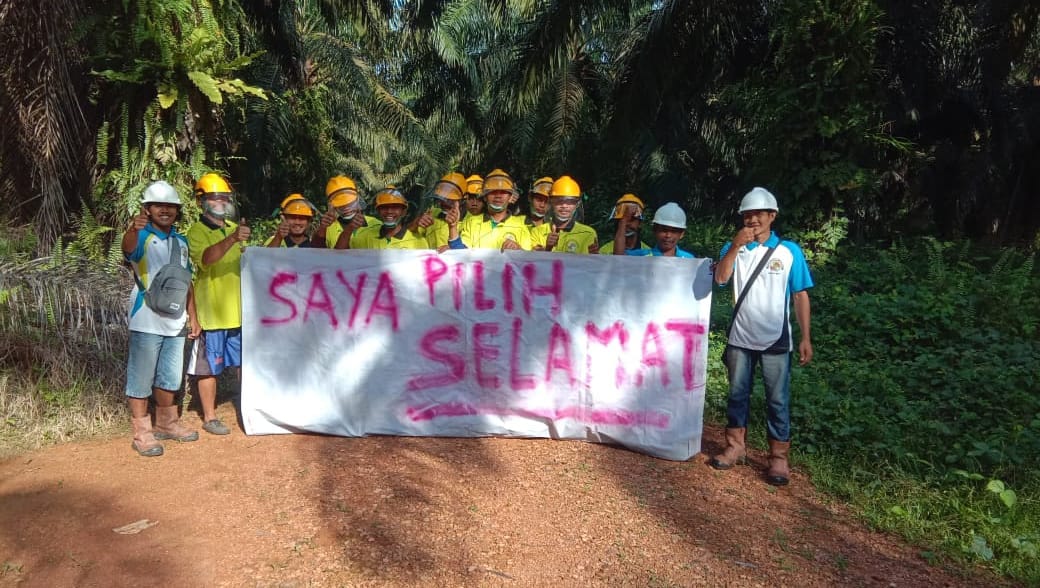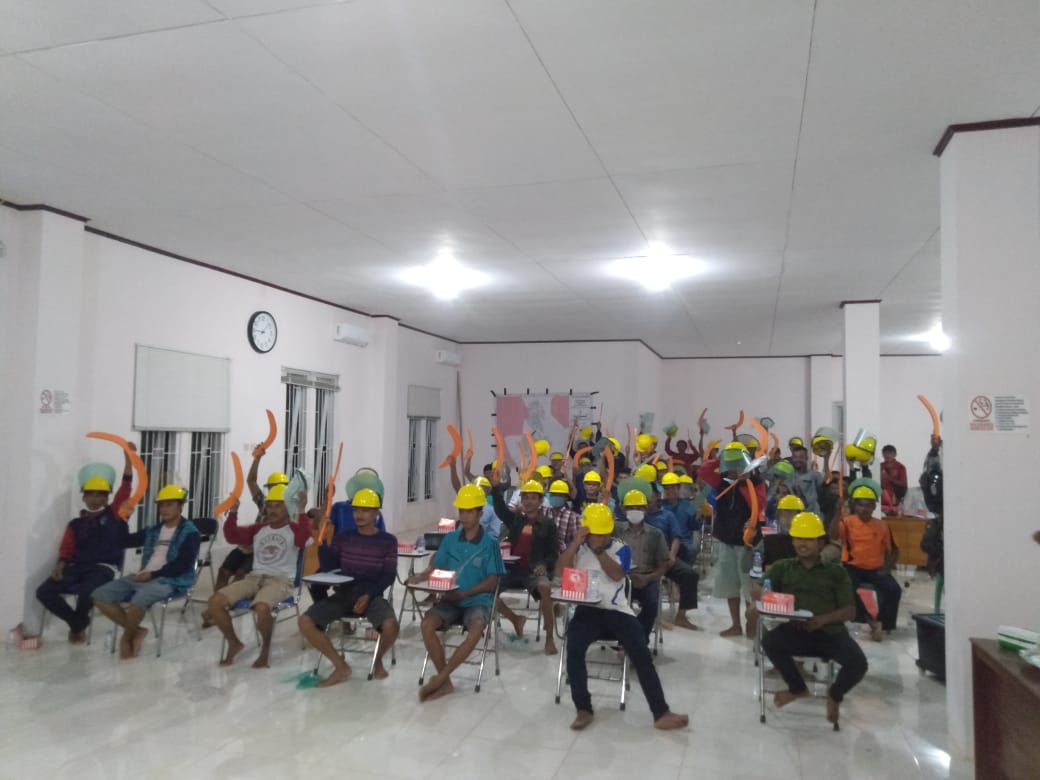
About the group
Number of smallholders: 324 (261 Men, 63 Women)
Total Land Area: 919.78 Ha
Status: Certified
Group location: Sukorejo Village, Seruyan Tengah Sub-District, Seruyan District, Central Kalimantan Indonesia
Country: Indonesia
On-going Facilitator:
SUSTAINABILITY JOURNEY STORY
Cooperative introduces exchange of plastic bottles for public services
In Sukorejo Village of Central Kalimantan, the Sawit Bangkit Cooperative has come up with a unique way to incentivise eco-friendly practices among its members: exchanging used plastic bottles for service at the Village Head Office. The practice of recycling plastic waste aims to encourage sustainable practices from the oil palm plantations within daily activities.
Agung Mujiono, who serves as Group Manager of the Cooperative, says that the scheme was initially launched for its members. Upon arriving at the office for use of its various services, members are asked to drop off plastic bottles.
“The smallholders have attended many training sessions as part of the process to obtain an RSPO certificate. Topics include the right methods in growing oil palm trees and harvesting. As the Cooperative became more aware of waste management as part of plantation maintenance, I proposed the idea of waste recycling to the Village Head.”
According to Mujiono, members of the Cooperative fully support the idea. Under this process, members bring used plastic bottles, such as a package of 1L-bottled water, whenever they visit the Village Head Office.
“Members usually bring along three plastic bottles. This is not a requirement, but people are happy with this practice. Villagers are willing to do so to better protect our environment,” Agung said. After collection, the used plastic bottles are given to the people in charge of waste recycling.
“Our office has the ability to make good use of recycled plastic. This process aims to reduce trash and prevent littering. Just two years after its implementation, this initiative has the collective support of the entire village. This is one of many benefits that our organisation has seen since acquiring the RSPO certification. Today, we are fully aware of the concept of sustainability and take action.”
The Sawit Bangkit Cooperative was awarded the certificate in 2018 after village smallholders met all requirements following a series of training sessions.
According to Agung, the farmers have experienced many benefits from the RSPO Certification. In addition to correct practices with respect to growing and harvesting, smallholders also learnt the best methods of fertilising, pest control, and other sustainable practices in palm oil production.
With this training, smallholders have improved the quality of production and harvest. Additionally, fertiliser has been supplied using more streamlined methods. As a result, non-member farmers are also able to purchase excess fertiliser products at the cooperative.
“To avoid land conflict risk, farmers have become more aware about land possession. Nonetheless, we still expect guidance from the government in this issue,” he said.
“The cooperative holds regular meetings for discussions and other purposes. Notably, there are specific meetings for the ICS team, which plays an important role on behalf of the smallholders. Given the importance of regular communication, we also use a WhatsApp group chat to stay in touch when we can’t physically meet.”
Agung reiterates the challenging work behind earning the certificate and retraining the farmers.
“While they still need assistance in some cases, participating farmers now understand the importance of sustainability through adopting environmentally friendly practices.”
The main challenge, according to Agung, is maintaining the current condition so that the organization can keep the certificate.
“By retaining the certificate, we can demonstrate that oil palm can always be cultivated sustainably,” he said. To advance the cause of sustainable production, Agung hopes more smallholders across the village will join the cooperative.
Project Impact
Total area covered by the project
919.78 Ha
Number of smallholders benefitting from this project
324 Smallholders
Number/percentage of women supported by this project
19.44% women in this project
How you can support
The group members are in their third year of being certified, and they need assistance from third parties to maintain their livelihoods while upholding sustainable practices on their plantations. Their efforts should be valued by downstream players such as Consumer Good Manufacturers and retailers.
Please show your support by purchasing RSPO Smallholder credits. With your help, they can be better equipped to raise awareness of the benefits of sustainable oil palm farming and protect the environment around us.
GROUP CONTACT
Representative Contact
Agung Mujiono | Group Manager | [email protected] |
Amat Faozi
ICS
(+62) 812-9397-0176
[email protected]
IMAGE GALLERY







